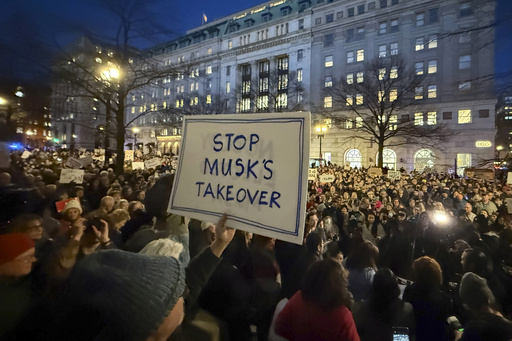Approximately 40% of the federal contracts President Donald Trump’s administration claims to have canceled in a bid to cut costs reportedly won’t save the government any money, according to the administration’s own statistics. The Department of Government Efficiency, led by Trump advisor Elon Musk, released a new list featuring nearly 2,300 terminated contracts across various federal agencies, with data suggesting more than a third—totaling 794 contracts—are expected to yield no financial savings.
The lack of savings is typically because the contracts’ total amounts have been fully obligated, legally binding the government to spend the funds on goods or services already acquired. Charles Tiefer, a retired University of Baltimore professor and authority on government contracting, likened the tactic to “confiscating used ammunition after it’s been shot,” suggesting it offers no real benefits or policy achievements. According to him, terminating these contracts does not effectively contribute to cost-saving goals.
In response, an administration official stated that canceling contracts viewed as non-essential makes sense, even without immediate savings. The official emphasized, however, that decisions were made under conditions of anonymity, as they were not permitted to speak publicly about the details.
Trump’s administration claims it is targeting fraud, waste, and misuse within government operations, with the cost-cutting strategy allegedly saving an estimated $65 billion through canceled leases, grants, cutbacks in staffing, and asset liquidation. The accuracy of these savings remains unverified by independent sources.
Some of the nixed contracts included those for concluded research studies, completed training sessions, purchased software, and finished internships. The administration also stopped subscriptions to several media outlets, citing this as part of wider fiscal reforms.
Additional contracts, such as those for office furniture purchases and installations or carpet cleaning services, were also canceled, despite those funds already being pledged to specific vendors. For example, an office furniture contract valued at $567,809 and a carpet cleaning contract of $145,549 were marked as already obligated.
Charles Tiefer expressed skepticism over these methods, arguing that they could hamper government agency functionality. He proposed that working collaboratively with contracting officers and inspectors general might result in more strategic efficiencies, an approach seemingly sidelined by the administration’s actions.
Despite DOGE’s claim that these cancellations would save $9.6 billion, some experts question the figure’s credibility, regarding it as potentially exaggerated.
Moreover, some contracts slated for cancellation were intended to modernize and enhance governmental operation efficiency. For instance, a significant contract with Deloitte Consulting LLP to help restructure the CDC’s National Center for Immunization and Respiratory Diseases, involved in the COVID-19 response, was cut, even though the full contract value of $13.6 million was already committed.
Concurrently, The Associated Press pursued legal means to challenge a ban on its access to presidential events, contending the decision stemmed from opposing editorial stances. While a federal judge declined to immediately intervene, the court suggested reviewing the ban instituted by the Trump administration.
